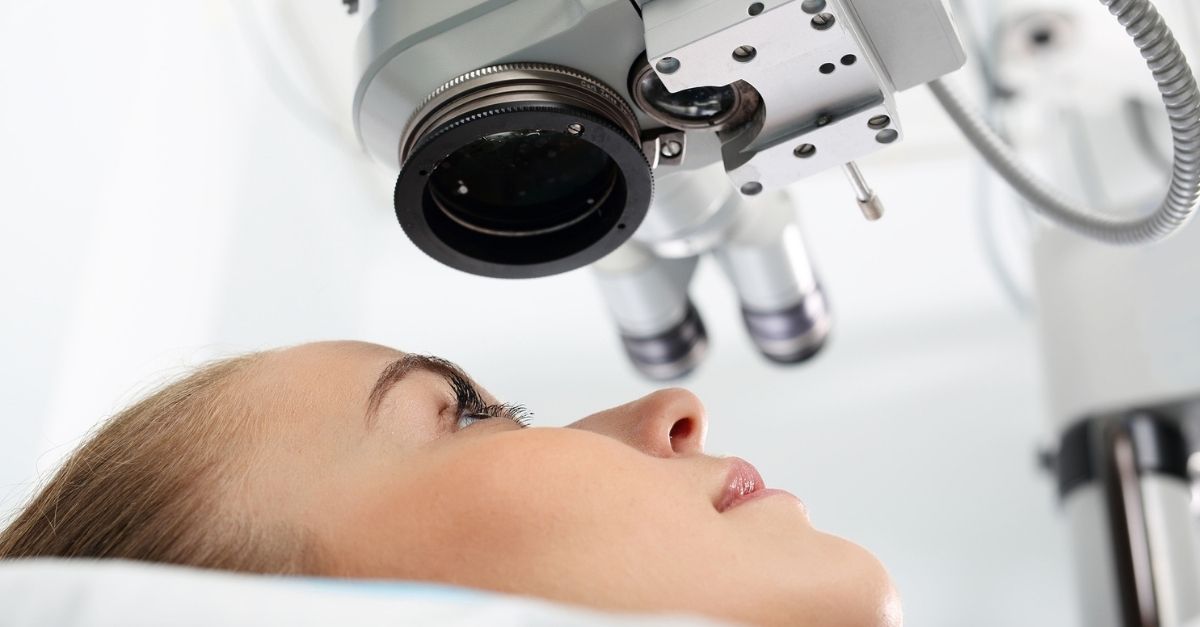Contact lenses and glasses make better vision possible for most people diagnosed with nearsightedness, farsightedness, or astigmatism. While these solutions certainly have their strengths, over time, they can become cumbersome for their wearers.
If you’re tired of wrestling with contact cleansing, or constantly looking for your glasses, you may be considering LASIK eye surgery. Here’s everything you need to know.
What Is LASIK?
LASIK is an abbreviation for Laser-Assisted In Situ Keratomileusis and works by reshaping the cornea so light can properly enter the eye and be focused by the retina for improved vision. LASIK is the most commonly performed procedure for nearsightedness (myopia), farsightedness (hyperopia), and astigmatism. Doctors across the U.S. perform 600,000 LASIK procedures each year.
To ensure the patient feels no discomfort during the procedure, the eye is numbed with eyedrops containing an anaesthetic solution. While there is no pain involved, some patients report experiencing slight pressure. The entire procedure takes roughly 15 minutes for both eyes.
Who’s a Good Candidate for LASIK?
There are factors that determine whether an individual is a good candidate for LASIK surgery.
Prescription: According to the American Academy of Ophthalmology, those with prescriptions for extreme levels of myopia, hyperopia or astigmatism, or prescriptions that have significantly changed within the last year may not be suitable candidates.
Eye Health: Your eyes should be generally healthy if you’re considering LASIK. For instance, LASIK could exacerbate existing dryness or eye pressure issues, making conditions like glaucoma worse. People with any eye diseases or a family history of them, such as keratoconus, should also avoid LASIK.
Age: A patient’s eyes must be fully developed to qualify for LASIK. Thus, patients under the age of 18 are not eligible.
Overall Health: Certain conditions that aren’t directly related to your eyes could impact vision or eye health. For instance, diabetes may increase your risk of complications such as diabetic retinopathy. Autoimmune disorders such as lupus and rheumatoid arthritis could also impact your ability to heal. If you have a preexisting condition, talk to your specialist to determine your candidacy.
Because pregnancy and breastfeeding can impact vision, women may also be advised to wait until they’re done having children to consider LASIK.
You can take Eye Consultants of Atlanta’s LASIK self-test here to learn more about whether or not you’re a candidate.
Though the procedure is relatively brief and painless, reported side effects of LASIK include dryness, itching, and burning, as well as the presence of halos or glares around lights. In most patients, symptoms are mild and clear up within a couple of months of having the procedure.
What Are the Benefits of LASIK?
For people who are eligible for LASIK, the benefits are clear. The procedure corrects vision almost immediately, and there is typically very little discomfort. For 96% of patients, desired results are achieved, and further adjustments can be made if needed. Most notably, the need for glasses or contact lenses is dramatically reduced, with the majority of patients no longer needing them at all.
If you’re considering LASIK, turn to the Eye Consultants of Atlanta. Our leading eye surgeons have performed more than 100,000 vision restoring procedures. Find out about our all-laser LASIK procedure by requesting an appointment online or by calling (404) 351-2020.

